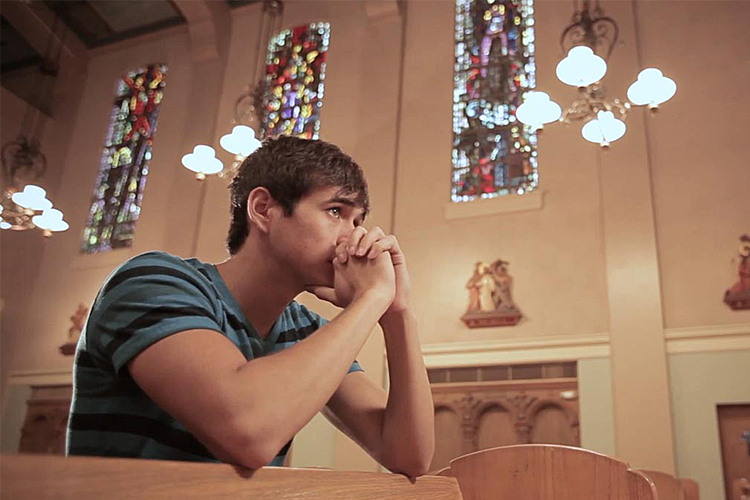What are Virtues?
Virtues are good habits, that is, they give us a disposition to perform good actions. Human actions do not arise from a series of disconnected choices. We acquire dispositions that incline us to act in habitual ways. When these habits are good we call them virtues.
What are the principal virtues?
There are four main natural (cardinal) virtues that every good person needs. In addition, there are three supernatural virtues which are unique to the life of grace. The latter are also called theological virtues because they fit us for union with God.
Natural (Cardinal) virtues
Prudence – Deliberating well about what actions we should do
Justice – Rendering to each and to all what is due to them
Temperance – Curbing the passions that incite us to evil actions
Fortitude – Courage in adversity and constancy in difficult actions
Supernatural (Theological) virtues
Faith – Trustful assent of the mind and heart to God’s revealed truth
Hope – Expectant desire for attaining eternal life with God
Charity – An active will to seek the good of God and others and heavenly friendship with them
How do we achieve the virtues?
To some extent, anyone can acquire natural virtues through the discipline of repeated good actions and a well-ordered life. Nevertheless, we need the help of God’s grace, by means of the sacraments and prayer, both to acquire the supernatural virtues and even to perfect and harmonize the natural virtues.
What are Vices?
Vices are evil habits; that is, they give us a disposition to perform evil actions. We sometimes develop vices which incline us to perform evil actions. These normally involve excess or deficiency in pursuing what is good.
The seven deadly vices
These seven vices are called ‘deadly’ because of their poisonous effects on the human soul, the difficulty that is often experienced in eradicating them, and the ease with which they lead to mortal sin. They are sometimes also called the seven deadly sins or the capital sins. Each of these vices has, as a remedy, a contrary virtue linked to the cardinal virtues.
The vices may promise an easier life but they ensnare and enslave us. By contrast, the virtues may seem difficult, but they lead to our true freedom and happiness as human beings.
The seven deadly vices and their remedies
1. Pride and Humility
Pride (the problem) is a denial of the superiority of the Creator and an inflation of our ego. It leads to excessive ambition, an overestimation of our own strengths and the desire to be idolised by others. Humility (the solution) is a recognition that we are creatures and in need of God. It helps us to form a true opinion of ourselves, to disregard shallow popularity and to free us from self-obsession.
2. Envy and Fraternal charity
Envy (the problem) is an anger or sadness that other people have gifts and possessions that we want for ourselves. Charity (the solution) is gratitude for the gifts and talents of others and a desire that each and every person reaches their potential.
3. Anger and Meekness
Anger (the problem) is a disordered state in which we take revenge on others, or an unfair opposition to a person or thing. Meekness (the solution) is a self-control, not a weakness, which allows us to master our emotions when attacked or wronged.
4. Sloth and Diligence
Sloth (the problem) is a laziness that prevents us from doing what we can achieve and should do. Diligence (the solution) is a readiness to always do what is needed. It makes even difficult tasks achievable.
5. Avarice and Liberality
Avarice (the problem) is an immoderate desire for possessions and gifts. Leads to injustice, stealing and indifference to the poor. Liberality (the solution) is a generosity towards others in sharing God’s gifts. It brings personal contentment with what we possess.
6. Gluttony and Temperance
Gluttony (the problem) is a disordered love for food and drink. It leads us to eat and drink excessively and exclusively for pleasure. Temperance (the solution) is a right use of food and drink for nourishment and pleasure. It leads to self-control in many other areas.
7. Lust and Chastity
Lust (the problem) is a disordered craving for selfish and sensual pleasure (generally sexual). It leads to abuses of the body and the family and many addictions. Chastity (the solution) is a proper use of our sexuality. It leads us to guard our heart and mind from evil influences, gives us freedom and allows us to love purely.
The Six Precepts of the Church
1. You shall attend Mass on Sundays and holy days of obligation.
2. You shall receive the sacrament of Confession (Reconciliation) at least once a year.
3. You shall receive Holy Communion at least once during the Easter season.
4. You shall keep holy the holy days of obligation.
5. You shall fast and observe abstinence on the prescribed days.
6. You shall provide for the material needs of the Church according to your ability.
THE SEVEN CORPOREAL WORKS OF MERCY
1. Feed the hungry
2. Give drink to the thirsty
3. Clothe the naked
4. Harbour the homeless
5. Visit the sick
6. Visit the imprisoned
7. Bury the dead
THE SEVEN SPIRITUAL WORKS OF MERCY
1. Convert the sinner
2. Instruct the ignorant
3. Counsel the doubtful
4. Comfort the sorrowful
5. Bear wrongs patiently
6. Forgive injustice
7. Pray for the living and dead
This article is originally from ‘CREDO: The Catholic Faith explained’ by CTS.
